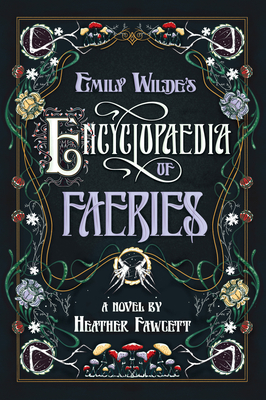 Emily Wilde's Encyclopaedia of Faeries (Emily Wilde, #1) by Heather Fawcett
Emily Wilde's Encyclopaedia of Faeries (Emily Wilde, #1) by Heather Fawcett Format: eARC
Source: supplied by publisher via Edelweiss
Formats available: hardcover, ebook, audiobook
Genres: fantasy, fantasy romance, historical fantasy
Series: Emily Wilde #1
Pages: 336
Published by Del Rey Books on January 10, 2023
Purchasing Info: Author's Website, Publisher's Website, Amazon, Barnes & Noble, Kobo, Bookshop.org, Better World Books
Goodreads
A curmudgeonly professor journeys to a small town in the far north to study faerie folklore and discovers dark fae magic, friendship, and love, in this heartwarming and enchanting fantasy.Cambridge professor Emily Wilde is good at many things: She is the foremost expert on the study of faeries. She is a genius scholar and a meticulous researcher who is writing the world's first encyclopaedia of faerie lore. But Emily Wilde is not good at people. She could never make small talk at a party--or even get invited to one. And she prefers the company of her books, her dog, Shadow, and the Fair Folk to other people.
So when she arrives in the hardscrabble village of Hrafnsvik, Emily has no intention of befriending the gruff townsfolk. Nor does she care to spend time with another new arrival: her dashing and insufferably handsome academic rival Wendell Bambleby, who manages to charm the townsfolk, get in the middle of Emily's research, and utterly confound and frustrate her.
But as Emily gets closer and closer to uncovering the secrets of the Hidden Ones--the most elusive of all faeries--lurking in the shadowy forest outside the town, she also finds herself on the trail of another mystery: Who is Wendell Bambleby, and what does he really want? To find the answer, she'll have to unlock the greatest mystery of all--her own heart.
My Review:
Emily Wilde is writing/compiling an encyclopedia of all the faerie species in the world. That’s not exactly a spoiler as the title does rather give it away. But what is a surprise and a delight is the story that she tells about herself and her world in the process of researching what will be a weighty reference tome.
Emily’s story isn’t weighty or tome-like at all – even if it does very nearly lead her to her own tomb as she finds herself in the midst of one of the stories of the fae that she intended to merely tell and most definitely not participate in.
Although, considering the vast amount of research she has done in her speciality, she certainly should have known better.
Emily Wilde, PhD, MPhil, BSc, DDe is an Adjunct Professor of Dryadology at Cambridge in this slightly alternate, early 20th century story of fantasy and academe. The alteration to the world is that the study of faeries and the fae has become a real academic discipline, similar in many ways to anthropology and/or sociology, because the fae are real in this world. Hidden, elusive, all-too-frequently dangerous, but entirely real.
Studying them has been Emily Wilde’s lifework for half her life, since she arrived in Cambridge at 15 and is now 30. But the academic tropes feel all too real, as Emily’s trip to remote, frozen Ljosland to add one last chapter to the Encyclopedia on the subject of the equally remote and equally frozen native fae, the Hidden Ones.
The encyclopedia is not just a labor of love, or even just labor. The whole point is for Emily to publish what will be the foundational reference work of her speciality and gain tenure in the process so that she can, in future, remain comfortably in her rooms at Cambridge and study to her heart’s content.
She’s tired of field work, she’s tired of being the lowest person on the academic ladder (adjuncts still get no respect) and she’s tired of dealing with people outside of academic circles. So she goes off to Hrafnsvik, the remotest village in remote Ljosland to finish the work. Alone.
Really alone because she offends the villagers almost as soon as she arrives. Not intentionally, but she’s just not good with people. Or small talk. Or letting anyone help her.
Which is when her best friend, chief nemesis and fellow dryadology scholar, Wendell Bambleby, appears unannounced on her rather Spartan doorstep in very chilly Hrafnsvik and proceeds to turn both her world and her research upside down.
He’s there to protect her from his kin. His dangerous and deadly fae kin. As well as, more than a bit, from herself. And does she ever need it!
Escape Rating A-: Whether readers will fall in love with Emily Wilde’s story depends a lot on whether they fall in love with the meticulous, misanthropic genius that is Emily Wilde herself. This is her diary, so we view nearly all of the events from Emily’s sometimes-blinkered point of view. So if you like her voice, you’ll like her book.
Emily seems a LOT like Hermione Granger in the Harry Potter series. Both in her obsessive desire to learn ALL THE THINGS, her preference for getting lost in her books and her research, and especially for her inability to even see the real-life consequences of her actions – which I fully admit may come a bit more from fanfiction than from the actual books. But still, Emily is very much a Hermione grown up and slightly oblivious about other people.
Emily is also a bit of Regan Merritt from yesterday’s book, in that she’s not traditionally feminine and for the most part is totally okay with that. She’s used to taking care of herself and finding solutions for herself and most importantly, rescuing herself. She doesn’t fit into any of her society’s boxes that are labeled “female” and she’s at peace with that – if not always with her inability to deal with the unwritten social rules that provide a whole lot of lubrication in dealing with other humans.
It’s obvious from the beginning that Wendell is following Emily because he loves her – even if it’s not obvious to her. At all. On that other hand, it’s been obvious to Emily for quite some time that Wendell is probably fae and in hiding. What makes their interactions so much fun to watch is that he charms everyone – and she resents just how easily people fall for his charm – but he never attempts to charm her. Their relationship, in all its push-pull banter, mutual annoyances and attraction to the opposite, is grounded in who they each really are and not a charmed or better version of themselves.
I particularly loved that this is an academic fantasy that isn’t about dark academe the way that The Atlas Six and Babel are – even though Emily would probably make an excellent ‘Babbler’. At the same time, the story is rooted in some of the darker things about academia in the real world, that place where the politics are so vicious because the stakes can be so damn small. That her world’s academia feels rooted in the real even though the world is not grounds the whole story and lets the reader fully get aboard its flight of dark fantasy.
Because there is darkness here. Not in academia, but in the way that the fae intrude upon and exploit Emily’s real world and the real people within it. What makes Emily’s journey into dark places drag us along with her is that the mistakes she makes that get her into so much trouble are so very human and so much a part of her personality.
So many characters in fiction literally seem ‘Too Stupid to Live’. That’s never Emily. What makes her so easy to empathize with, at least for this reader, is that she believes she’s too smart to be taken in. And she’s almost, but not quite, right.
I adored this as I was reading it. I was charmed from the very beginning and that charm didn’t leave me when I turned the final page. Howsomever, now that I’ve had some time to think about it I’m wondering a bit about exactly how Emily’s and Wendell’s relationship is going to work in the future. He’s essentially immortal and she’s absolutely not. Whether he’s remotely capable of being faithful is a seriously open question. There’s a significant power imbalance just on the academic side even without him being fae. So I’m left with a whole encyclopedia full of questions.
Which means that I’m very pleased that this is billed as the first book in an Emily Wilde series. Hopefully I’ll get to find out the answers to those questions in the not too distant future.

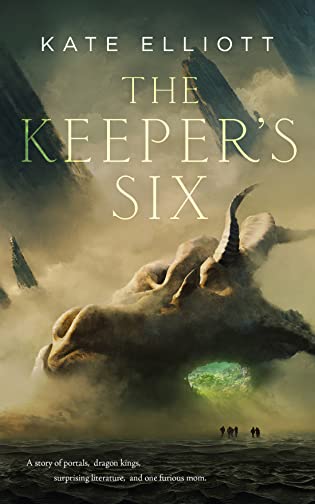 The Keeper's Six by
The Keeper's Six by 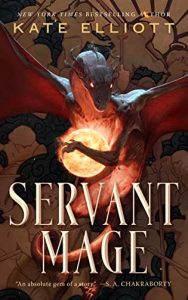 Escape Rating A-: Like the author’s previous novella,
Escape Rating A-: Like the author’s previous novella, 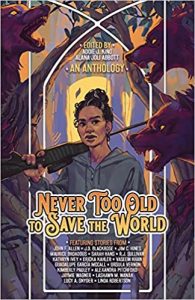 On top of everything else that made The Keeper’s Six so much fun was the way that it seemed to link to so many other wonderful books. Not just the previously mentioned
On top of everything else that made The Keeper’s Six so much fun was the way that it seemed to link to so many other wonderful books. Not just the previously mentioned 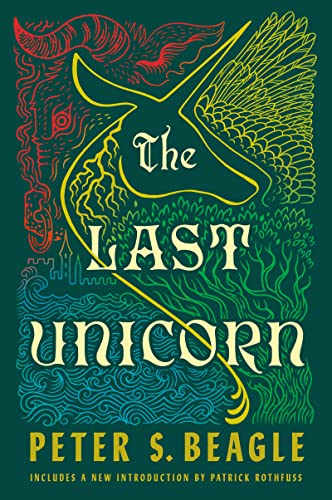 The Last Unicorn (The Last Unicorn, #1) by
The Last Unicorn (The Last Unicorn, #1) by 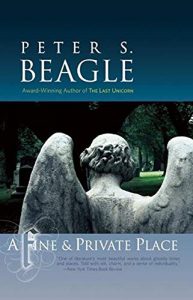 It’s beautiful, it’s haunting, and it’s as perfect a story in its own way as The Princess Bride is in its. Read it and quite possibly weep, but read it all the same.
It’s beautiful, it’s haunting, and it’s as perfect a story in its own way as The Princess Bride is in its. Read it and quite possibly weep, but read it all the same.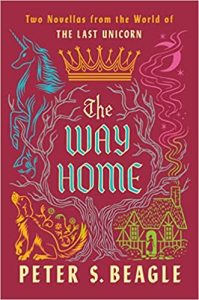 There is just so much in The Last Unicorn. It’s the kind of story that sinks deep into the reader’s soul and doesn’t leave. I’m so glad I finally read it and hope that you will be intrigued enough to do so as well.
There is just so much in The Last Unicorn. It’s the kind of story that sinks deep into the reader’s soul and doesn’t leave. I’m so glad I finally read it and hope that you will be intrigued enough to do so as well.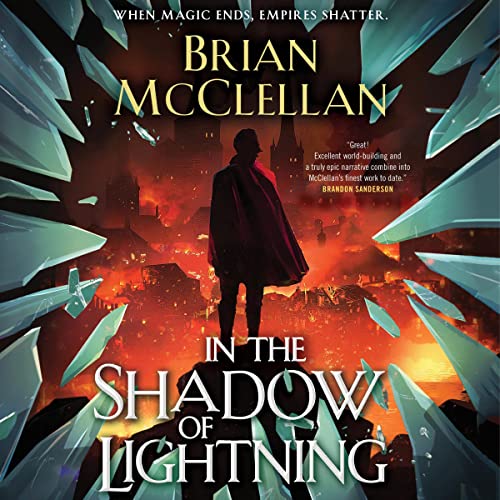 In the Shadow of Lightning (Glass Immortals, #1) by
In the Shadow of Lightning (Glass Immortals, #1) by 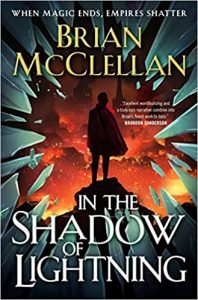 Escape Rating A+: “Glassdamn.” It rolls easily through the mind, or trippingly off the tongue, as though it’s an epithet that we’ve always used – or at least could have if we’d had a mind to. And glassdamnit but this is a terrific story.
Escape Rating A+: “Glassdamn.” It rolls easily through the mind, or trippingly off the tongue, as though it’s an epithet that we’ve always used – or at least could have if we’d had a mind to. And glassdamnit but this is a terrific story.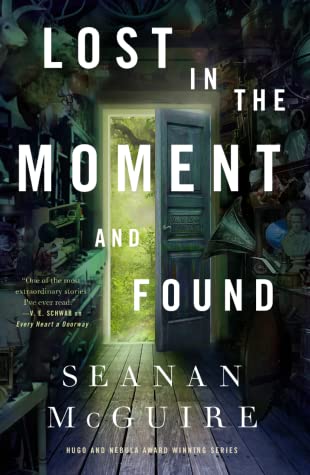 Lost in the Moment and Found (Wayward Children, #8) by
Lost in the Moment and Found (Wayward Children, #8) by  Escape Rating A-: Considering that the author spoils this in an Author’s Note at the very front of the book, I don’t feel at all bad about doing it here as well. Because honestly, if she hadn’t told me up front that Antsy was going to rescue herself from the grooming, gaslighting monster in her own house I wouldn’t have made it through the first chapter.
Escape Rating A-: Considering that the author spoils this in an Author’s Note at the very front of the book, I don’t feel at all bad about doing it here as well. Because honestly, if she hadn’t told me up front that Antsy was going to rescue herself from the grooming, gaslighting monster in her own house I wouldn’t have made it through the first chapter.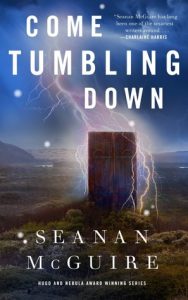 Which won’t stop me from reading the next book in the
Which won’t stop me from reading the next book in the 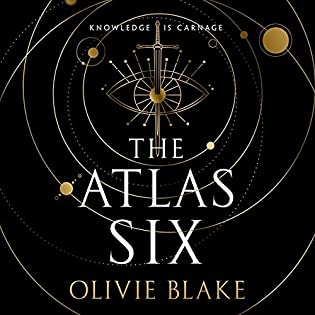 The Atlas Six (The Atlas, #1) by
The Atlas Six (The Atlas, #1) by 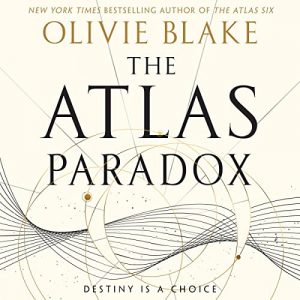 Which admittedly does ramp up the tension VERY dramatically for the second book in the series,
Which admittedly does ramp up the tension VERY dramatically for the second book in the series, 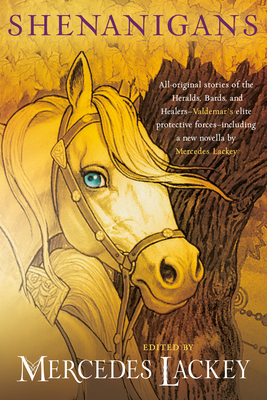 Shenanigans (Tales of Valdemar, #16) by
Shenanigans (Tales of Valdemar, #16) by  Last week’s
Last week’s 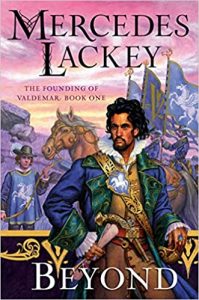 Of course, there are also several stories set among the students of the Collegium, because, well, students and pranking make for a fun story no matter what world they’re set in.
Of course, there are also several stories set among the students of the Collegium, because, well, students and pranking make for a fun story no matter what world they’re set in.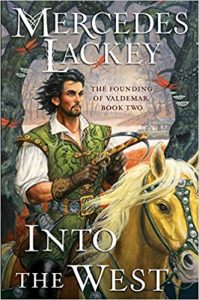 Last but not least there’s, Diana Paxson’s “One Trick Pony”, which mixes a bit of the bittersweet memory of heartbreak and the horrors of war into its story about a man who has found peace after grief and war by gardening, and the way that peace is invaded by a woman who reopens his heart and a newly born Companion who is learning the limits of their own power one prank at a time.
Last but not least there’s, Diana Paxson’s “One Trick Pony”, which mixes a bit of the bittersweet memory of heartbreak and the horrors of war into its story about a man who has found peace after grief and war by gardening, and the way that peace is invaded by a woman who reopens his heart and a newly born Companion who is learning the limits of their own power one prank at a time.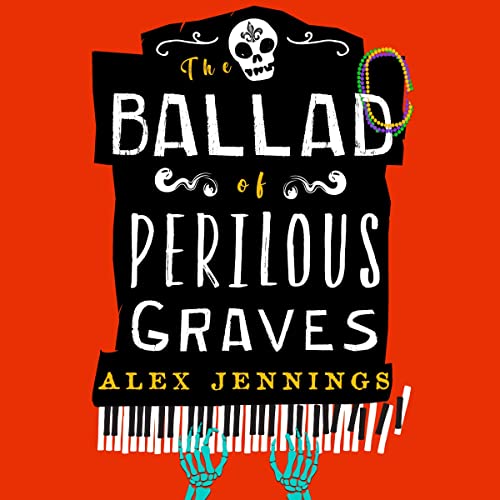 The Ballad of Perilous Graves by
The Ballad of Perilous Graves by 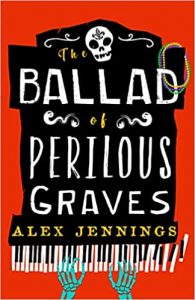 Escape Rating A-: I am a sucker for stories about New Orleans so I was all set to love The Ballad of Perilous Graves. Which in the end I did, although it took awhile to get me there. This is one of those books where the audiobook, as read by Gralen Bryant Banks, carried me over to the point where the story got its hooks into me and didn’t let go.
Escape Rating A-: I am a sucker for stories about New Orleans so I was all set to love The Ballad of Perilous Graves. Which in the end I did, although it took awhile to get me there. This is one of those books where the audiobook, as read by Gralen Bryant Banks, carried me over to the point where the story got its hooks into me and didn’t let go.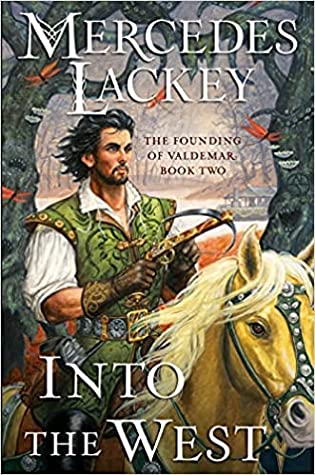 Into the West (The Founding of Valdemar, #2) by
Into the West (The Founding of Valdemar, #2) by 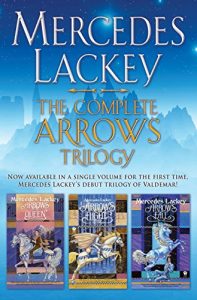 We already knew the destination. What Valdemar is, what it became, seemed fully formed all the way back in
We already knew the destination. What Valdemar is, what it became, seemed fully formed all the way back in 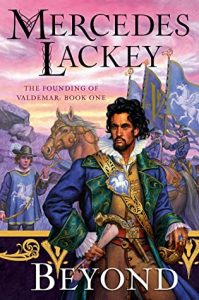 Escape Rating B: If you’ve read
Escape Rating B: If you’ve read  The one signature feature of the entire
The one signature feature of the entire  When the Angels Left the Old Country by
When the Angels Left the Old Country by 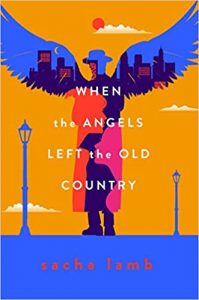 Escape Rating A+: In the foreword, the publisher claims that they’ve been referring to this book as the “queer lovechild of Philip Roth and Sholem Aleichem” – which is a lot to live up to. I think it read as
Escape Rating A+: In the foreword, the publisher claims that they’ve been referring to this book as the “queer lovechild of Philip Roth and Sholem Aleichem” – which is a lot to live up to. I think it read as